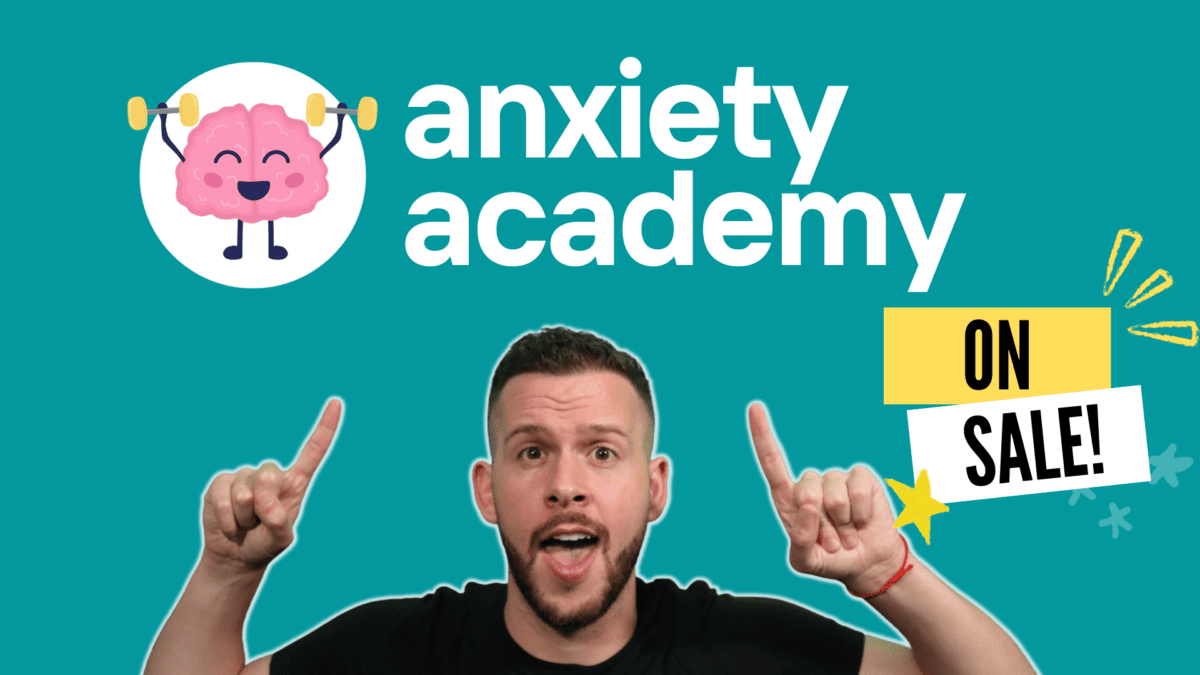Vaping has become increasingly popular in recent years, with millions of people around the world choosing this "trendy" alternative to smoking. While many people see vaping as a healthier alternative to smoking, there are concerns about the potential impact of vaping on mental health, particularly anxiety. So, does vaping cause anxiety?
Vaping may be linked to symptoms of anxiety. Chemicals in vaping products, nicotine, and psychological factors can all contribute to anxiety in vapers. Quitting vaping and seeking support can help manage anxiety levels and decrease dependence over time.
But like many modern relationships, the link between the two can be complicated.
Let's explore the latest research and examine the surprising link between vaping and anxiety!
Later, we'll discuss some good ways to quit vaping if you decide it's best to do so!
Does Vaping Cause Anxiety? The Surprising Link Between the Two!
Did some guy with a big beard and an ironic tattoo tell you that vaping is cool?
Did he blow mesmerizing smoke rings and tell you how much the babes love the "strawberries and cream" flavored cartridges?
Well for your sake, I hope you think anxiety is cool too!
While vaping may seem less harmful than traditional smoking methods, it still carries a number of risks, not the least of which is to our mental health. With kids getting started vaping at younger and younger ages, here are some facts you're going to want to know.

Chemicals in Vaping Products and their Potential Impact on Anxiety
Let's start with the obvious risks. One of the main concerns about vaping is the chemicals in vaping products and their potential impact on mental health.
Vaping products can contain a wide range of chemicals, including:
- Nicotine
- Propylene glycol
- Vegetable glycerin
- Various (often unnatural) flavorings
Now, granted, some of these chemicals are considered safe for consumption in small doses. However, there is limited research on the long-term effects of inhaling these substances.
More dangerous is a common chemical in vaping products called diacetyl, which is used to create a buttery flavor. Inhaling diacetyl has been linked to bronchiolitis obliterans, a serious lung disease that causes coughing, wheezing, and shortness of breath. While diacetyl is no longer used in most e-liquids, there are still concerns about other chemicals in vaping products and their impact on mental health.
Additionally, according to a study published in the journal Tobacco Control, some flavorings in e-cigarettes can produce high levels of reactive oxygen species, which can lead to inflammation in the lungs and potentially impact mental health. [1]
The Role of Nicotine in Vaping and Anxiety
And let's not simply brush over or underestimate the negative effects of nicotine.
Does vaping cause anxiety via nicotine?
Nicotine is one of the main chemicals found in vaping products, and it's a central nervous system stimulant that can increase anxiety levels. When you inhale nicotine, it activates the release of dopamine, a neurotransmitter that creates feelings of pleasure and reward. This makes us feel good in the short term and is the reason vapers continually crave their next pull.
Unfortunately, when dopamine levels drop, you can experience symptoms of anxiety and depression. When we go too long without a dose, our stress and anxiety levels may start to climb, nagging us to reach for our pen and take another hit.
Did You Know? Compared to smoking, vaping can lead to higher levels of nicotine intake. This is because vaping liquids contain different concentrations of nicotine, customized to suit the user's preferences. However, the impact of nicotine on anxiety levels can vary from person to person, depending on factors such as genetics, environment, and lifestyle.
Is Vaping without Nicotine Safe?
Vaping without nicotine is safer than smoking or vaping with nicotine, but it is not risk-free. Vapes often contain a number of other potentially harmful chemicals besides nicotine. In addition to causing potential lung problems, the simple act of vaping can become psychologically addictive over time.
How to Quit Vaping and Relieve Anxiety Naturally
If you're concerned about the potential impact of vaping on anxiety, it may be time to consider quitting. Quitting vaping can be a challenging process, but there are natural remedies that can help you manage anxiety during the quitting process.
Here are some tips to help you quit vaping and reduce anxiety levels:
- Gradually reduce nicotine intake: One of the reasons why vaping can cause anxiety is because of nicotine, a central nervous system stimulant that can increase anxiety levels. Gradually reducing nicotine intake can help reduce anxiety levels during the quitting process.
- Practice relaxation techniques: Relaxation techniques, such as deep breathing, meditation, and yoga, can help reduce anxiety levels and manage nicotine withdrawal symptoms.
- Seek support: Quitting vaping can be challenging, but you don't have to do it alone. Seek support from friends, family, or a support group to help you stay motivated and manage anxiety levels.
- Try using a chemical-free vape alternative like the Komuso Shift: Although originally created to help people reduce stress through breathwork, many of their testimonials come from satisfied customers who have successfully quit vaping by using the device.
Psychological Factors that Can Contribute to Anxiety in Vapers
In addition to the chemicals in vaping products and the role of nicotine, there are also psychological factors that can contribute to anxiety in vapers. For example, some people may feel anxious about the potential health risks associated with vaping, or they may experience social anxiety if they're the only person in their friend group who doesn't vape (This can also be why people are starting to vape at younger and younger ages!).
Some people may also use vaping as a way to manage stress and anxiety, leading to a potential cycle of dependence. When we rely too heavily on our vape to bring us comfort, we can easily enter panic mode when our vape juice runs out!
A study published in the International Journal of Environmental Research and Public Health found that vapers who used e-cigarettes to manage stress and anxiety were more likely to become dependent on vaping and experience withdrawal symptoms. This suggests that vaping as a coping mechanism for stress and anxiety may not be an effective long-term solution and may contribute to higher levels of anxiety. [2]
Research Studies on Vaping and Anxiety: What Have We Learned So Far?
Despite the popularity of vaping, there is still limited research on the link between vaping and anxiety. However, recent studies have shed some light on this topic.
Here are three studies that have explored the link between vaping and anxiety:
- A study published in the Journal of Psychiatric Research found that young adults who used e-cigarettes were more likely to experience symptoms of depression and anxiety than those who did not use e-cigarettes. [3]
- Another study published in the journal Addiction found that people who used e-cigarettes daily were more likely to experience symptoms of anxiety and depression compared to those who used e-cigarettes less frequently. [4]
- A third study published in the Journal of Adolescent Health found that teenagers who vaped were more likely to experience symptoms of anxiety and depression compared to those who did not vape. [5]
Total Score: Not Vaping: 3, Vaping: 0
While these studies provide some evidence of a link between vaping and anxiety, more research is needed to fully understand the relationship between these two factors.
So... Does Vaping Cause Anxiety?
The link between vaping and anxiety is complex and multifaceted.
While vaping may be a healthier alternative to smoking, this doesn't make it good for us.
There are concerns about the potential impact of vaping on mental health, particularly anxiety. Chemicals in vaping products, nicotine, and psychological factors can all contribute to anxiety in vapers. If you're concerned about the potential impact of vaping on your mental health, consider quitting and seeking support from friends, family, or a support group.
Quitting vaping may not be easy, but it's worth it for the long-term health benefits.



